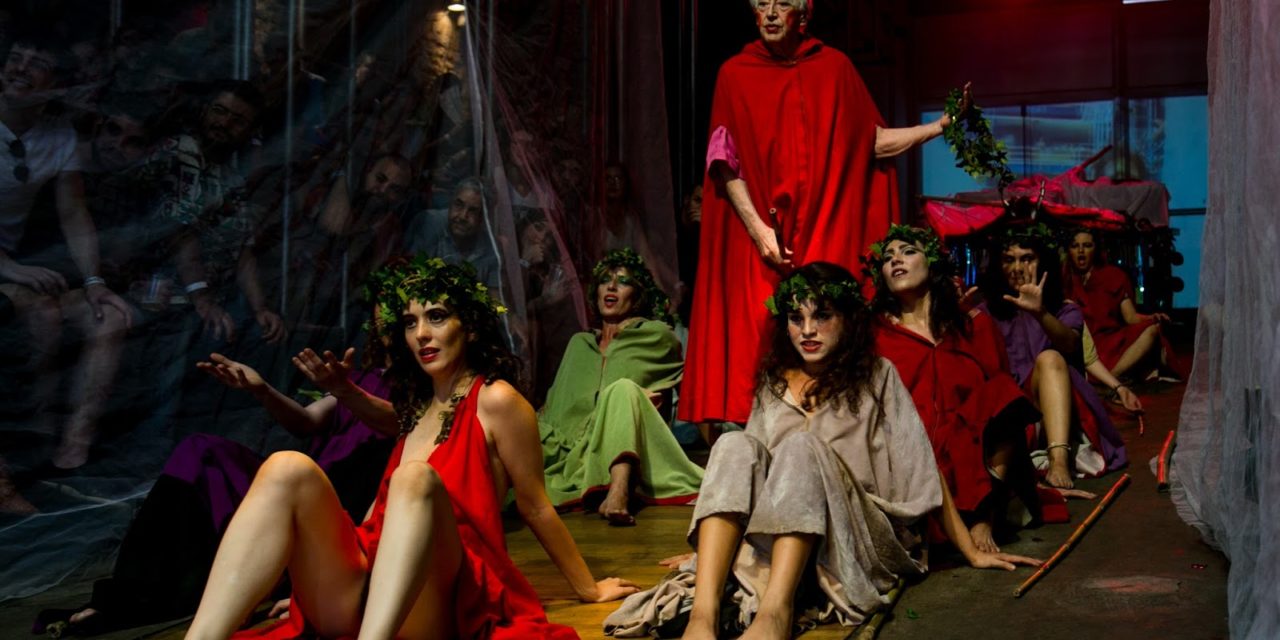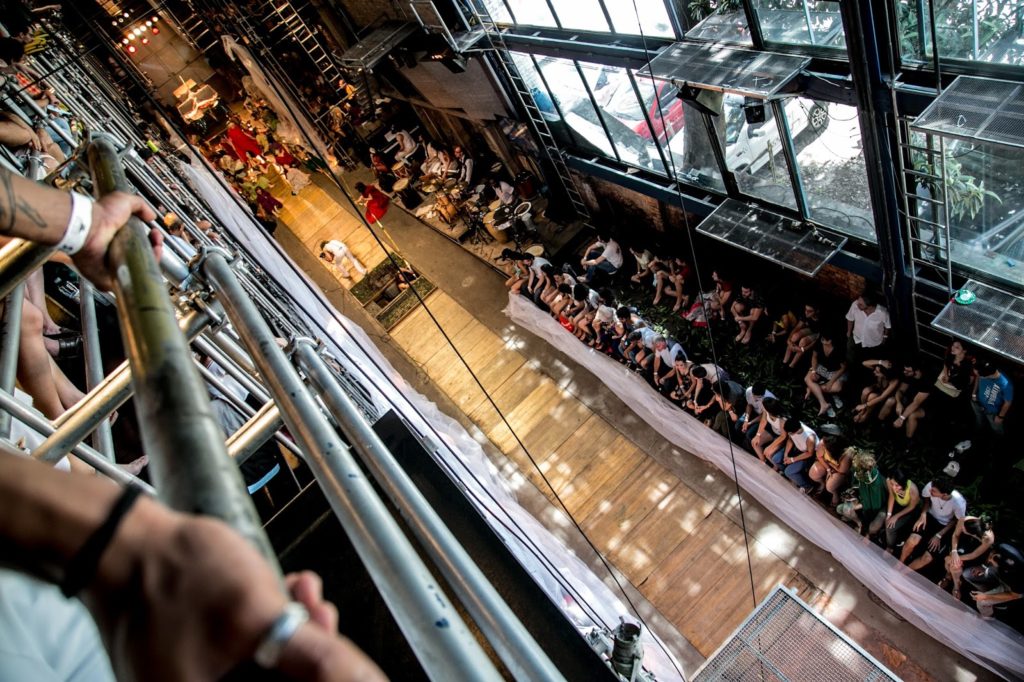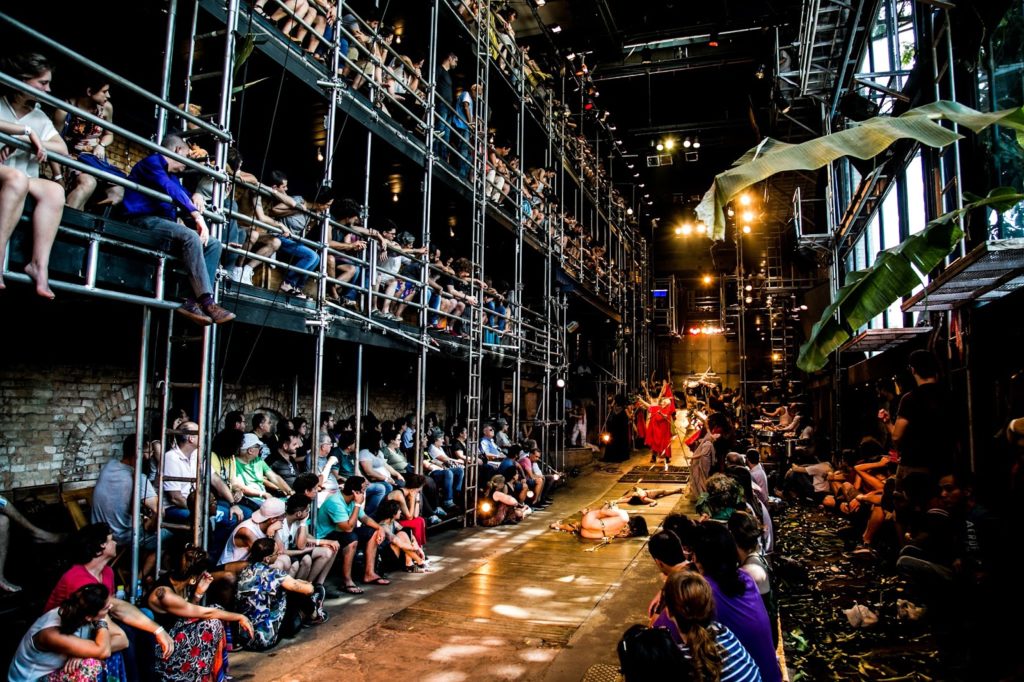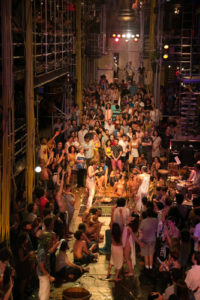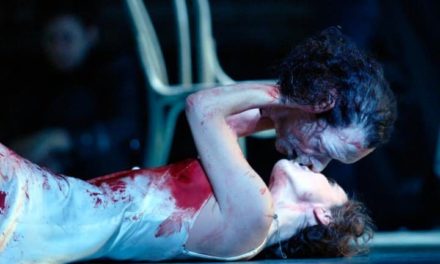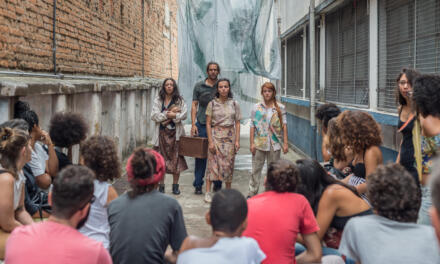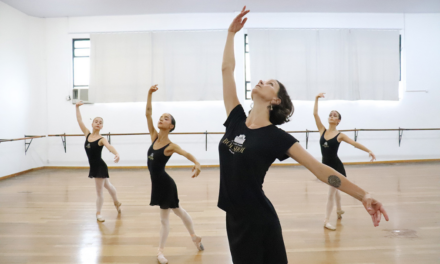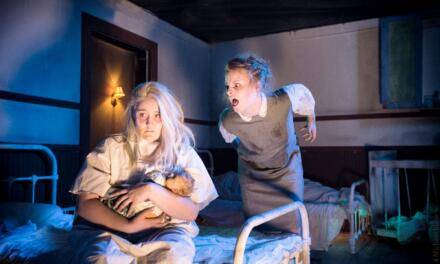The first time I saw a play by Oficina Uzyna Uzona, at Teatro Oficina, was in 1994. Better said, it was the first time I have been in a play by Oficina (because the performances of this group are not to be seen, they are to be in). It was Ham-let, a free staging of Hamlet. I was a young theatre student, and I became amazed at all that freedom the actors (and the director) had on stage. In fact, if we are talking about the venue, Teatro Oficina, the stage is not a regular stage, but sort of a track, a corridor with audiences on both sides.
Teatro Oficina is the venue where the group works since 1961. It had several configurations, and it was partially damaged by a fire in 1966. But since 1993 it has its current configuration, designed by the Italian-Brazilian architect Lina Bo Bardi. In 2015, Teatro Oficina was considered the best theater in the world by the British newspaper The Guardian.
Since this first experience, I decided I would try to be in São Paulo (because I live in Rio de Janeiro) to see every play I could in that place, performed by that group of people, staged by their incredible director, José Celso Martinez Corrêa – Zé Celso as theatre people call him.
The following play directed by Zé Celso I had the chance to be in, was Mistérios gozosos (in a free translation, Joyful Mysteries) in 1995. It was created from the dramatic poem O santeiro do mangue – Mistério gozoso em forma de ópera (in a free translation, The Saint Sculptor from the Mangrove – Joyful Mystery in an Opera Form) by Oswald de Andrade, a very important Brazilian modernist writer and a key reference for the group. How I felt about it was even stronger than how I felt about Ham-let.
Then, in 1996, I was in Bacantes, Ze Celso’s adaptation (with Catherine Hirsch, Marcelo Drummond and Denise Assunção) of Euripides’s Greek tragedy The Bacchae. And I felt like I was not in a play, but in a ritual, an orgiastic worship. A “tragicomediorgya” (tragicomedyorgy) as Zé Celso says when someone asks what the genre of Bacantes is. And while I was in it, I thought: this staging of this play should be in the theaters forever.
Of course, that didn’t happen. Since Bacantes premiered, twenty-one years ago, Oficina has staged many plays, very important plays, such as the pentalogy Os sertões (2001/2007), based on Euclides da Cunha’s novel, written in 1902, Os sertões (Rebellion in the Backlands). A 24-hour performance, divided into five parts and developed in seven years, was performed in many Brazilian cities and abroad, such as Volksbühne Theatre in Berlin. Or the six plays from Cacilda series, long duration performances written by Zé Celso, based on a great Brazilian actress’s life, Cacilda Becker (1921-1969). But, to my delight, Bacantes was staged many times again along these years: 2001, for a DVD recording of the play, 2009, 2010, 2012 and in 2016 (celebrating the 20 years of the first staging).
PERFORMANCES DURING CARNIVAL
This last performance is back at Teatro Oficina from February 11th until April 2nd, including the Carnival days (February 26th and 27th) when almost all the theaters don’t perform in Brazil. By the way, Zé Celso’s Bacantes begins with a song by Jackson do Pandeiro (Brazilian composer, 1919-1982), in a samba enredo rhythm (samba enredo is the kind of samba people sing in the parades on Carnival). The beginning of the lyrics says:
“Quem disse que a escola de samba não sai / não tem cabeça pra pensar / A escola vai sair / e o povo vai cantar / e eu vou gargalhar / qua qua qua qua”
(“Who says that the samba school does not go out / does not have a head to think / The school will go out / and the people will sing / and I will laugh / qua qua qua qua”)
It refers to the fact that Zé Celso had worked on the adaptation of The Bacchae for thirteen years, and people had already begun to say that he would never actually stage it. But he did. And it is not a simple staging of The Bacchae, but one of the most important Brazilian plays of the end of 20th century. And this rite-play begins the performance as a Samba School going out to a parade in the Carnival.
POLITICS IN THE PLOT
On their website, the group describes the plot of Bacantes as follows: the play witnesses the arrival of Dionysus (Marcelo Drummond), son of Zeus (Sergio Siviero) and the mortal Semele (Camila Mota), in his hometown, TebaSP, but people do not recognize him as God. Later on, he begins a clash with Pentheus (Fred Steffen), son of Agave (Joana Medeiros), who, through a coup d’etat, took the power of his grandfather, the Governor Kadmos (Ricardo Bittencourt) and tries to prohibit the performance of the theatre of bacchic rites officiated by Dionysus and the Choir of Bacchantes and Satyrs in the hills of the city.
The plot is very true to Euripides, and the structure of the scenes are quite close to the original Greek tragedy, but the Zé Celso’s text and the staging mix the Greek myth with references such as Candomblé, pop music, Rock’n’Roll and the present Brazilian and international politics.
Pentheus is a politician of a new generation, but he took power through a coup d’état and represents the resumption of a retrograde, racist, sexist and xenophobic thinking against the libertarian and libidinal Dionysus and his followers. The metaphor was pertinent twenty-one years ago, but it is even more powerful in Brazil’s current political context. In contex of this new wave of conservatism that plagues the world, Bacantes seems even more prescient.
Zé Celso will be 80 years this year, on March 30th. The group Oficina began its activities in 1958 and Zé Celso, since then, has always been the main director and the mentor. Since 1996 he has performed Tirézias in this play, and this year he will celebrate his 80th birthday on the stage, as the old and wise seer who knows everything because he has been both a woman and a man. Dionysus always wins in the end.
This post was written by the author in their personal capacity.The opinions expressed in this article are the author’s own and do not reflect the view of The Theatre Times, their staff or collaborators.
This post was written by Felipe Vidal.
The views expressed here belong to the author and do not necessarily reflect our views and opinions.

